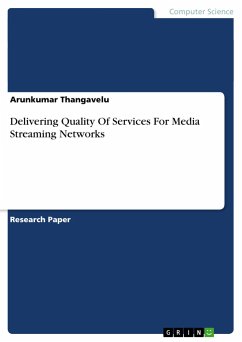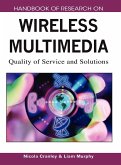Research Paper (postgraduate) from the year 2007 in the subject Computer Science - Internet, New Technologies, grade: PG, VIT University (Net Research Labs), language: English, abstract: One of the major challenges faced by MANET researchers is the deployment of end-to-end quality-of-service support mechanisms for streaming media services over a group of MANET users. Group-oriented services over large, dynamically changing MANET networks has a big impact on the needs of streaming services communication in terms of mobility, quality of service (QoS) support and multicasting. In MANET networks, where such features are not embedded with its architecture, it is necessary to develop QoS multicasting strategies. The research work focuses on the basic building blocks of an mobile ad hoc group communication scheme, which achieves multicasting optimal QoS efficiency OptiQ by tracking resource availability in a node's neighborhood based on resource reservations, which announces the required QoS before each session initiation. The primary quality of service (QoS) issues such as required bandwidth, message delay, traffic type and hop count per route improves the efficiency of streaming services over ad-hoc network. Streaming services support voice, data and video traffic by assessing and adjusting for various levels of QoS. The performance analysis is performed on functional prototype of OptiQ in mobile / wireless ad-hoc network with emphasis on service satisfaction for multiple group conference sessions. The performance of OptiQ scheme is well compared with QoS-aware versions of AODV and TORA, well-known ad-hoc routing and limited QoS protocols. Using the SPRUCE bandwidth traffic gathering tool, with a set of C++ modules an extensive set of performance experiments were conducted for these protocols with OptiQ on a wide variety of mobility patterns and reservation strategies. The results shows the performance analysis of OptiQ is better than AODV or TORA protocol in minimizing end-to-end delay and controlling loss.
Bitte wählen Sie Ihr Anliegen aus.
Rechnungen
Retourenschein anfordern
Bestellstatus
Storno








